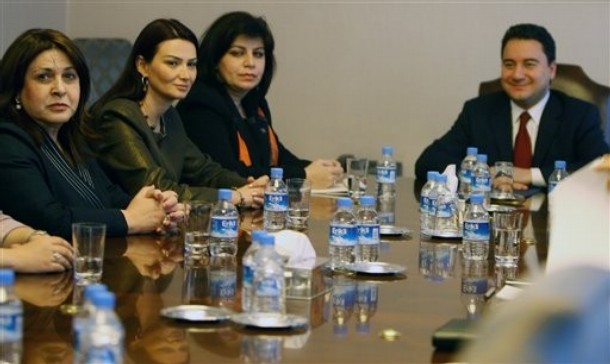
Azerbaijan Nervously Watching Turkish-Armenian Rapprochement
Publication: Eurasia Daily Monitor Volume: 6 Issue: 166
By:

The Turkish-Armenian agreement on September 1 to start political consultations aimed at establishing diplomatic relations between the two countries has once again raised concerns in Baku. It is only four months since the Turkish Prime Minister Recep Tayyip Erdogan visited Baku and assured Azerbaijani politicians and the public that the closed border between Turkey and Armenia will remain unchanged until the occupied territories of Azerbaijan are liberated. Yet, the recent announcement by Armenian and Turkish diplomats once again shocked political circles in Azerbaijan.
The ruling party -Yeni Azerbaijan Party- immediately announced on September 2 that "the party considers the normalization of Turkish-Armenian relations unacceptable until Karabakh is liberated" (www.day.az, September 2). Mubariz Gurbanly, the deputy executive secretary of the party added, "Turkey and Azerbaijan are strategic allies. Our relations are based on the principles of ‘one nation-two states.’ Much unites our countries. These recent talks between Armenia and Turkey negatively influence public opinion in Azerbaijan." Ali Ahmadov, a member of parliament and one of the most influential MP’s in the ruling party, drew attention to the speech made in the Azerbaijani parliament by Erdogan: "We respect that statement in which Erdogan said that the border will not re-open prior the resolution of the Karabakh conflict" (Trend News, September 5).
The Azeri foreign ministry also issued a statement, saying that the establishment of relations with other countries is a sovereign right of every nation, yet considering the fact that the re-opening of the Turkish-Armenian border touches on the national interests of Azerbaijan, this matter cannot be resolved without the resolution of the Karabakh conflict. Elkhan Polukhov, a spokesman for the foreign ministry, recalled that the borders were closed in response to the Armenian occupation of Azerbaijani territory. "Thus, they can open only after the occupation has ended" (www.day.az, September 1).
Although Turkish politicians rushed to reassure their Azerbaijani colleagues that Turkey will not act against the national interests of Azerbaijan, tension over the issue remains high in Baku. The Azeri Foreign Minister Elmar Mammadyarov held a telephone call with his Turkish counterpart Ahmet Davutoglu to clarify Baku’s stance, and received further assurances from the Turkish side. On September 8, while on a visit to Georgia, Davutoglu stated that "much time remains until the borders will open" (APA News). The Turkish President Abdullah Gul, also stated that "Turkey will not take steps which will disappoint Azerbaijan" (Trend, September 8).
The majority in Azerbaijan link the re-opening of the Turkish-Armenian border to the resolution of the Karabakh conflict. Azerbaijani political circles are not against the normalization of Turkish-Armenians relations per se, yet they would like to see this process tied to the withdrawal of Armenian military forces from the occupied Azerbaijani lands. The recent peace talks between the Azerbaijani and Armenian presidents failed to produce any concrete breakthrough. Observers in Baku noted Yerevan’s stubbornness and refusal to free Azerbaijani lands in exchange for the gradual normalization of Azerbaijani-Armenian political, economic and trade relations. Thus, the opening of the Turkish-Armenian border, they believe, might further embolden Armenia and make it less likely to compromise on the Karabakh issue.
There are those, however, who believe that the re-opening of the Turkish-Armenian border will eventually prove positive for Azerbaijan and for the whole region. "Normalization of Turkish-Armenian relations will diminish Russian influence over Armenia, and will be beneficial for Azerbaijan," according to the Azeri political scientist Ilgar Mammadov (www.ilgarmammadov.lifejournal.com, September 2).
The international community welcomed the Turkish-Armenian rapprochement, as a positive step towards securing sustainable peace and prosperity in the South Caucasus. Indeed, the cold war between Turkey and Armenia has not produced any tangible positive results over the past decade. Armenia still refuses to liberate the occupied Azerbaijani lands and has fallen more and more into military and economic dependence on Russia. It is hoped that the normalization of Turkish-Armenian relations will break the status quo and provide more opportunities for peace in the region.
Yet, it remains to be seen how Azerbaijan will react to the Turkish decision. If Baku’s stance is not taken into consideration, the consequences for Ankara might be unpredictable. Without winning a new friend, Turkey might lose an old one. Thus, the strategic presence of Turkey in the region, as well as the prospects for such regional projects as the Nabucco gas pipeline might be significantly weakened.




